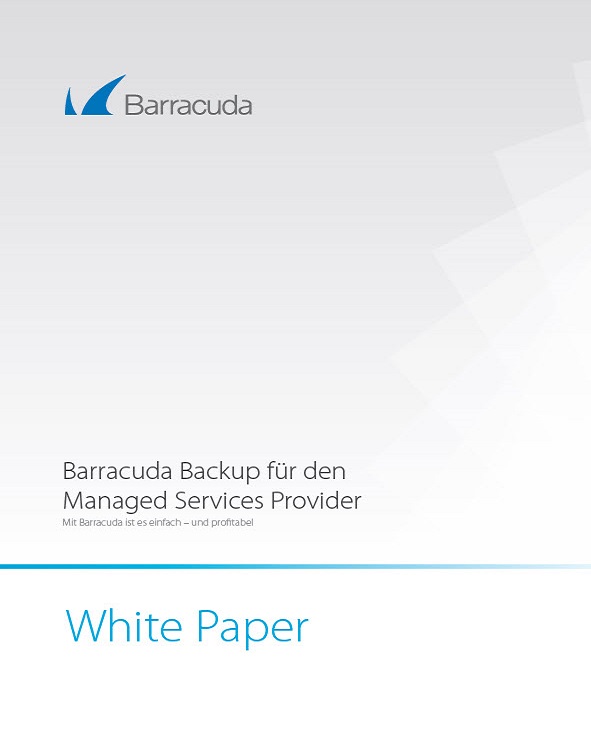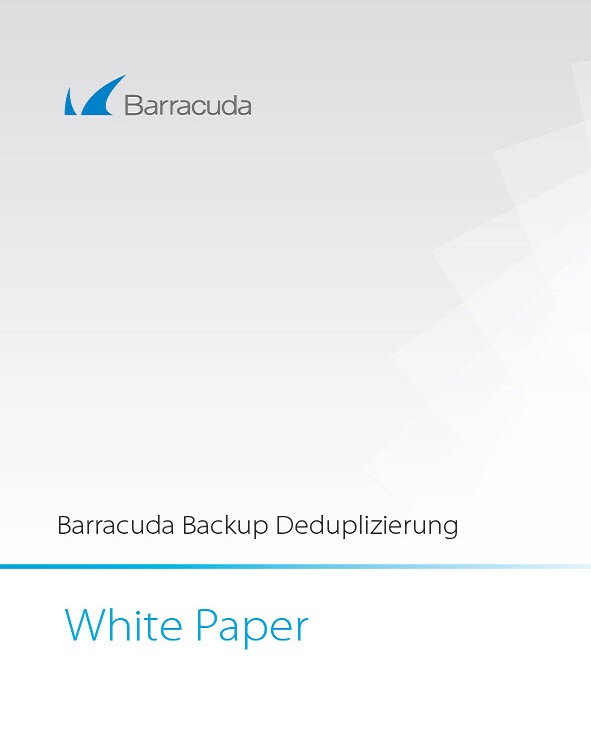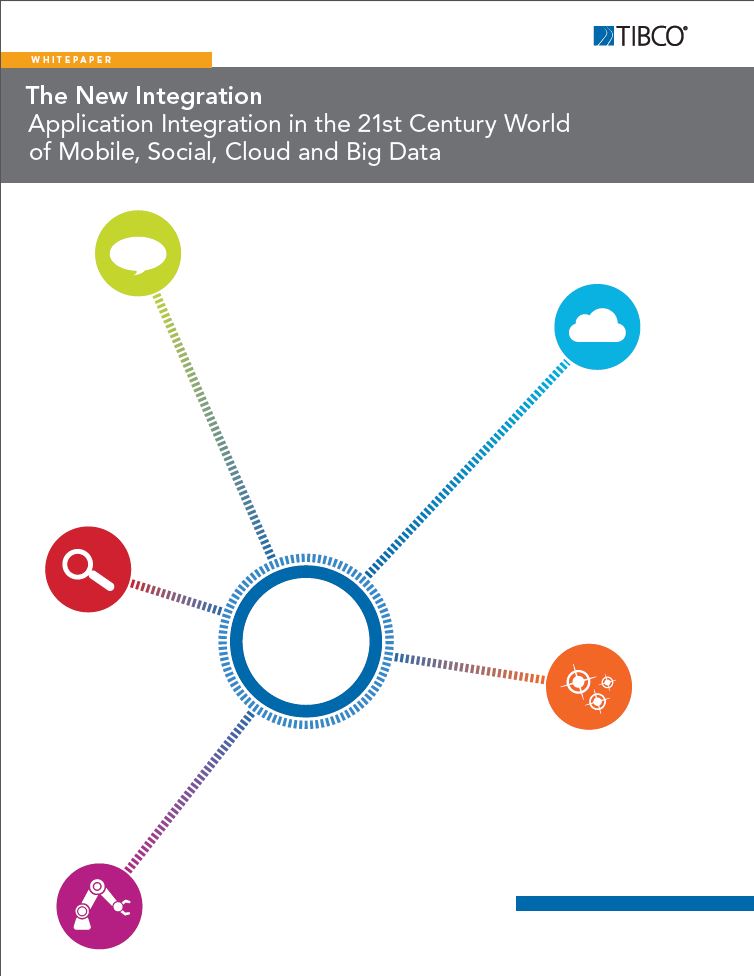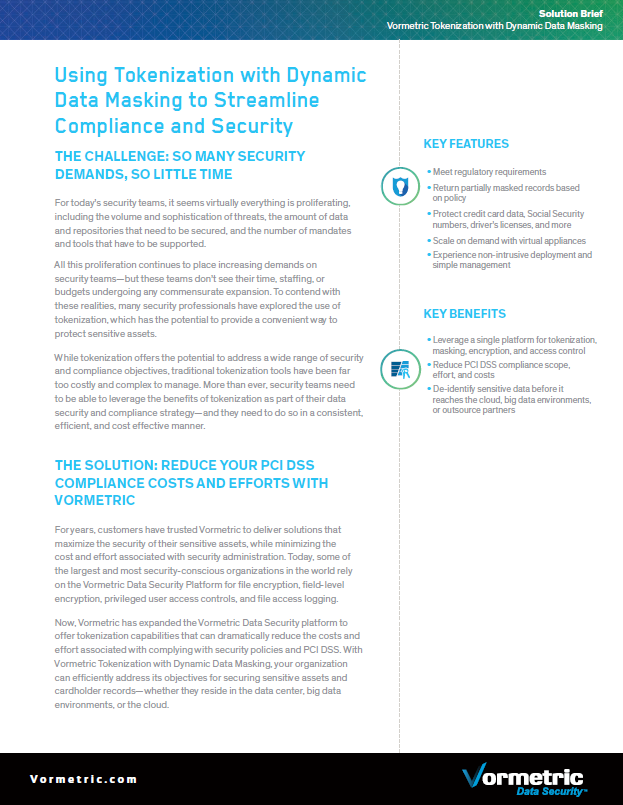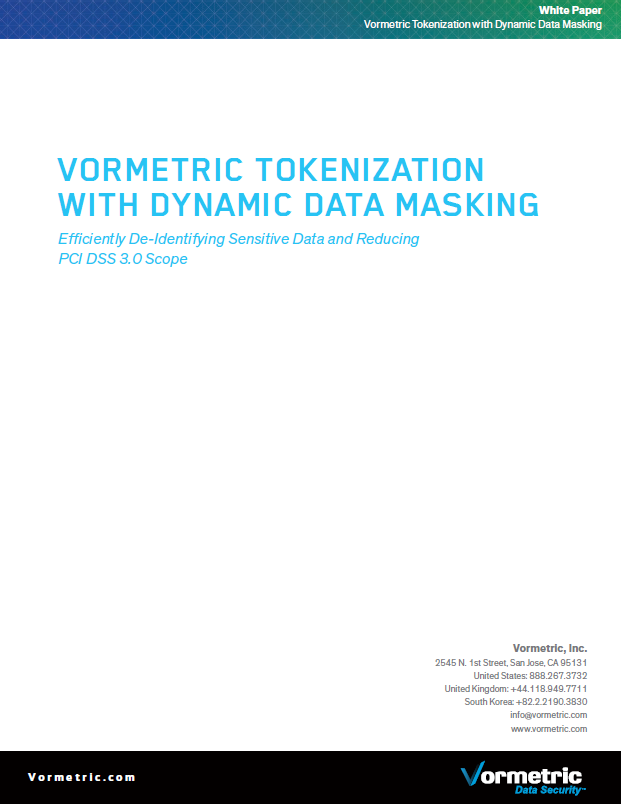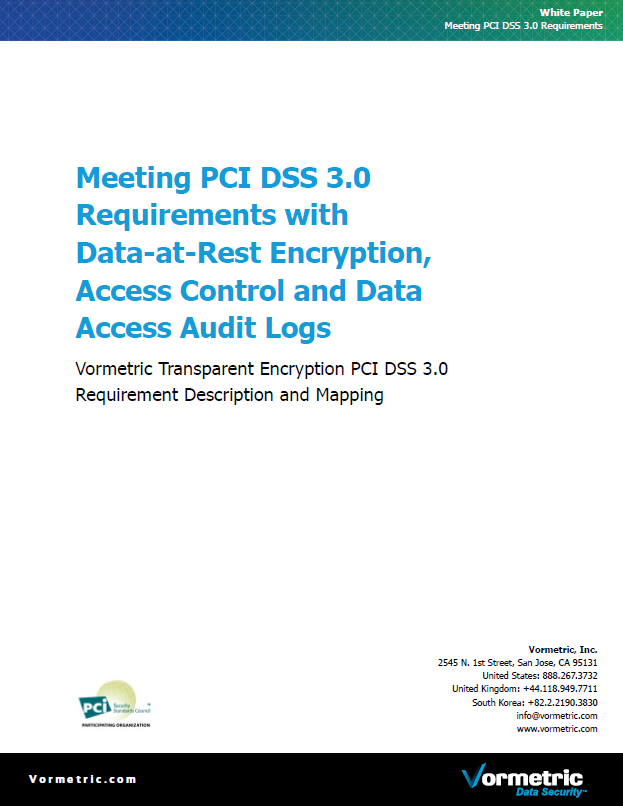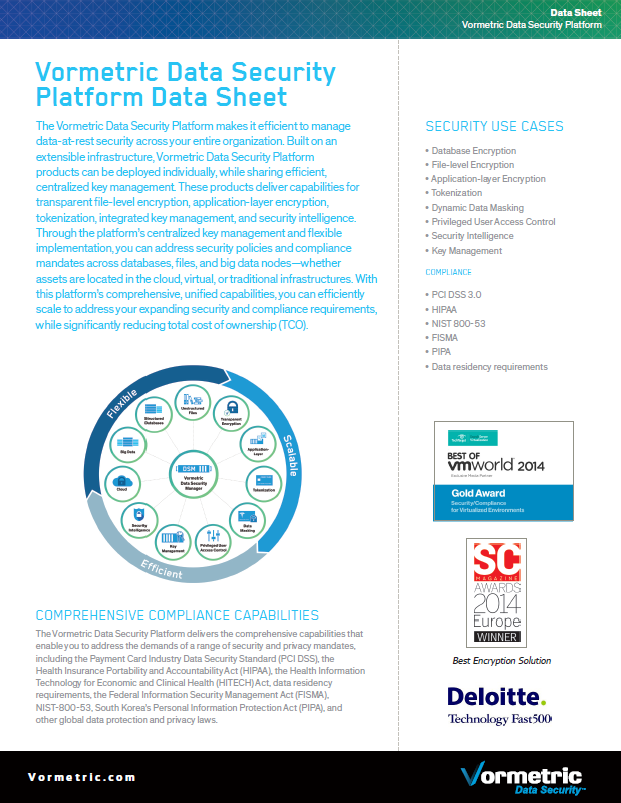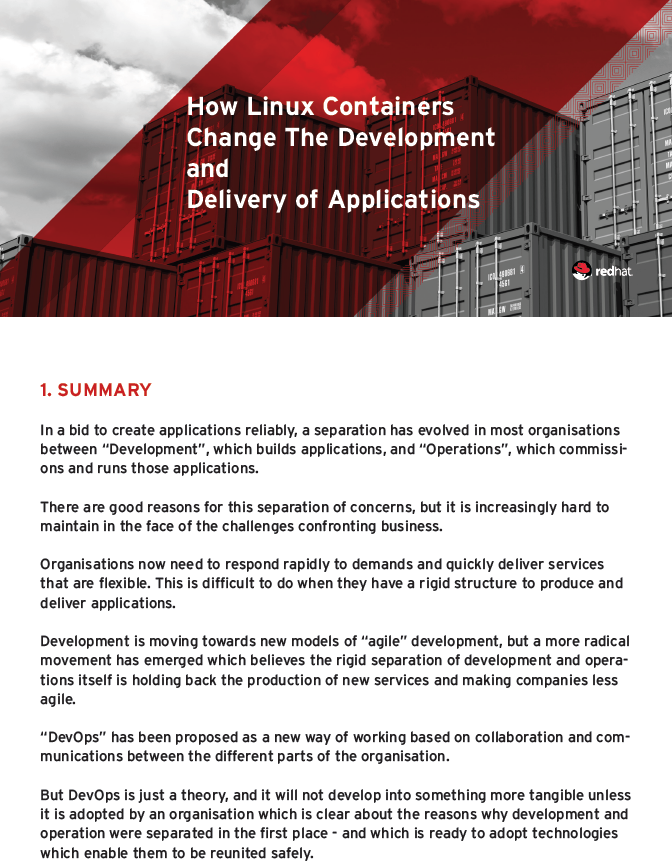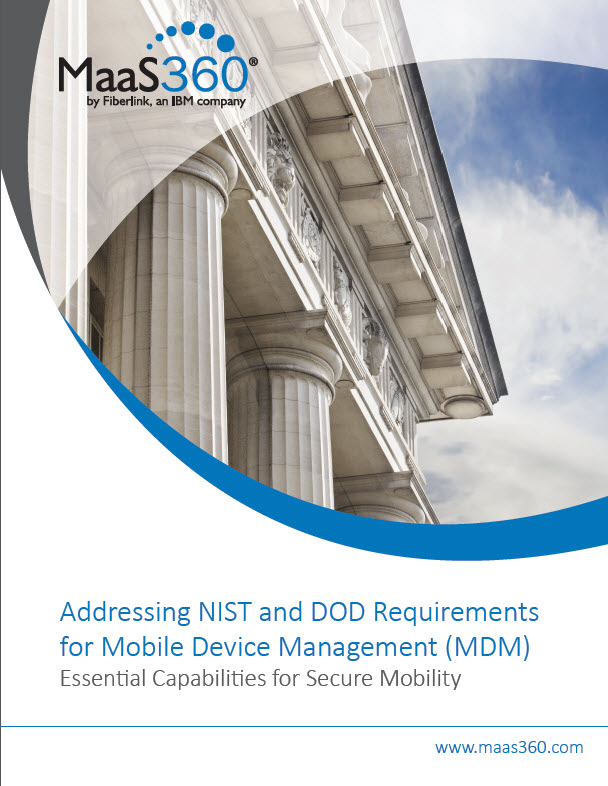Barracuda Backup für den Managed Services Provider
Ohne eine wettbewerbsfähige Backup Lösung ist ein umfassendes Angebot von IT Dienstleistungen nicht komplett. Die traditionelle Backup Lösung setzt sich aus Hardware, unterschiedlicher Software, für physische und virtuelle Komponenten, Speichermedien und gegebenenfalls auch einer Cloud- Infrastruktur, bereitgestellt von verschiedenen Anbietern, zusammen. Für viele Service Provider, mit begrenzten Ressourcen, ist solch eine Lösung zu komplex, zu
